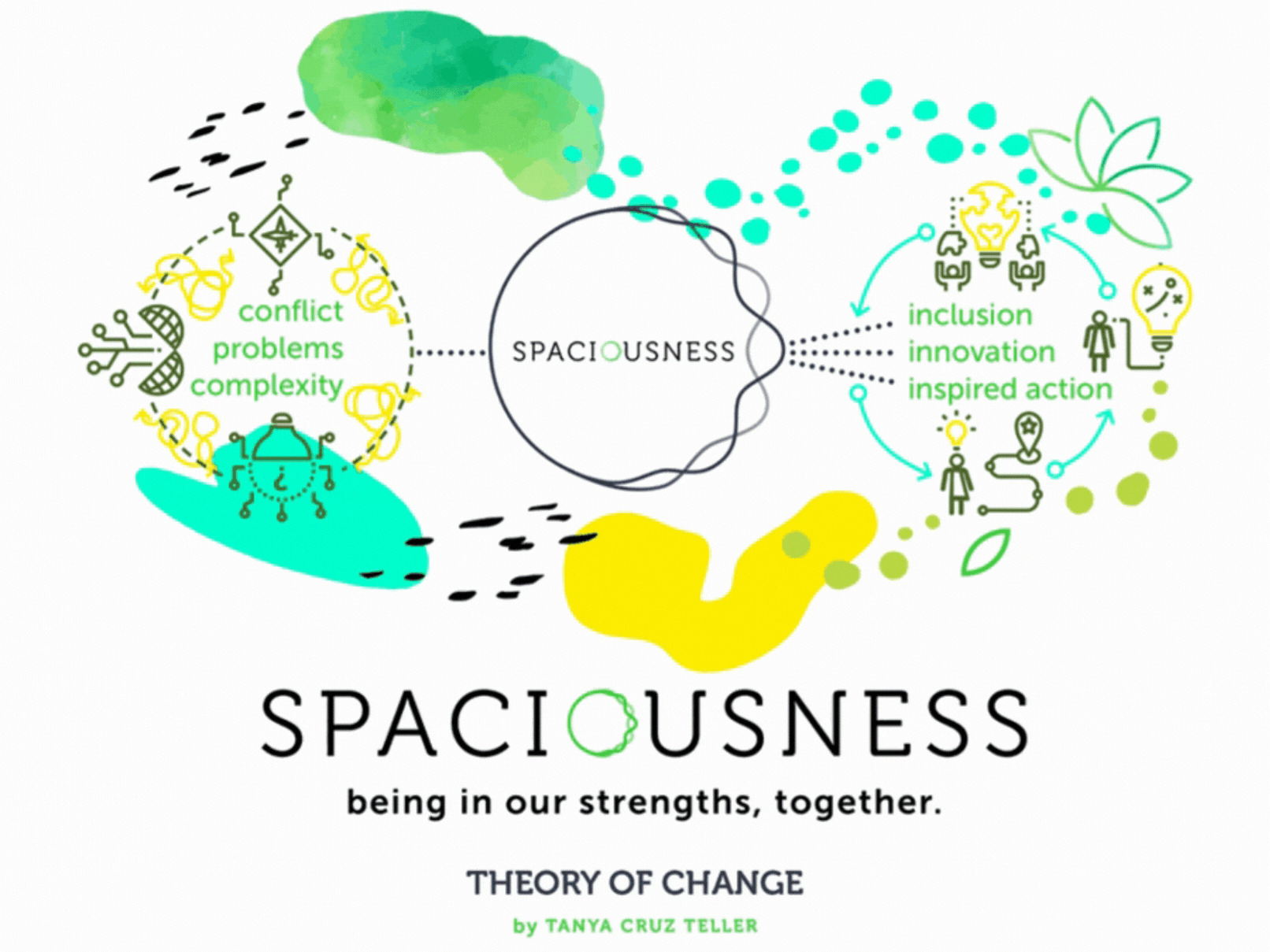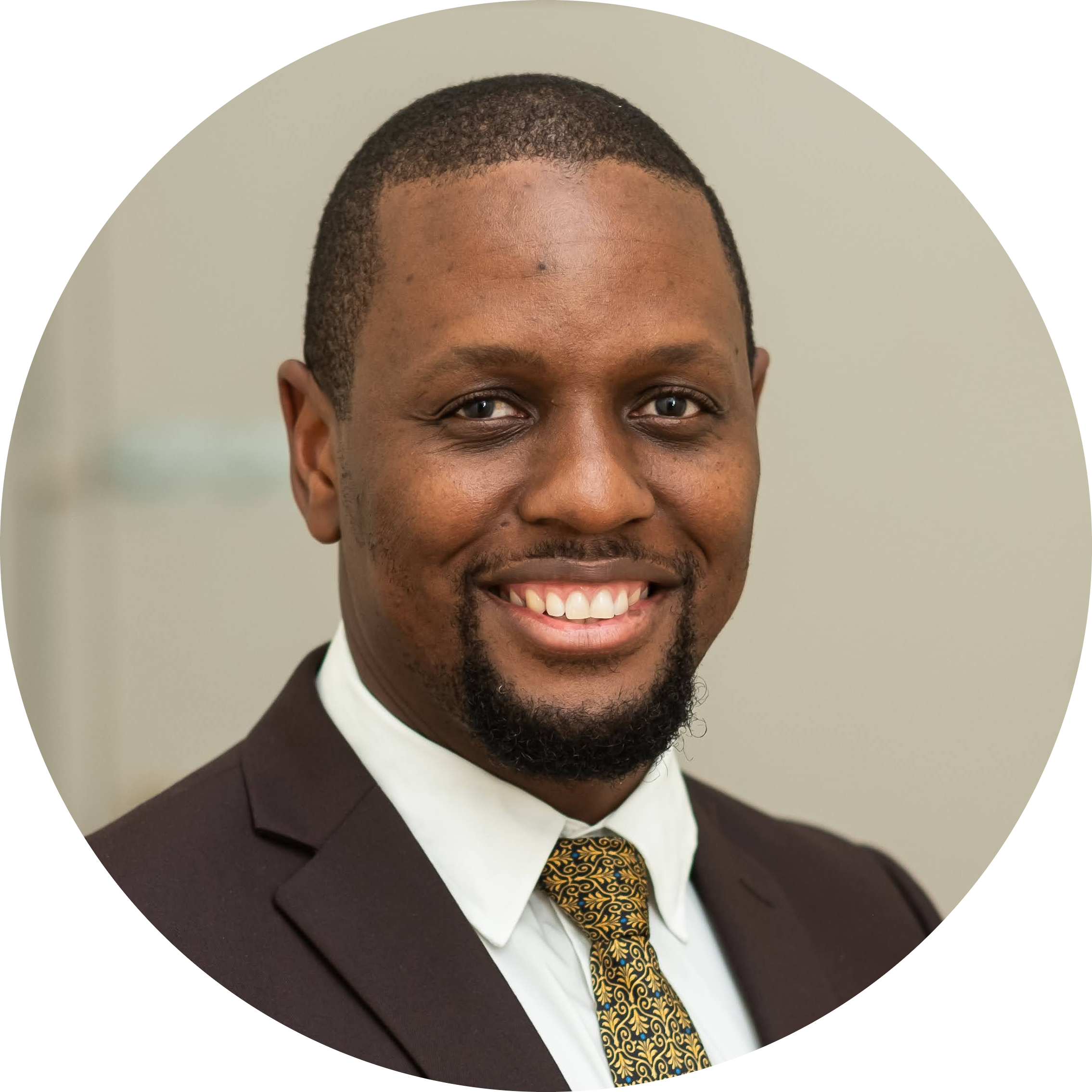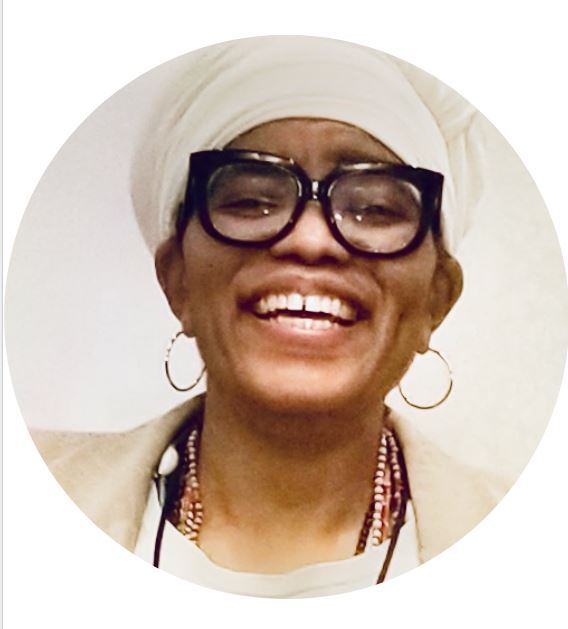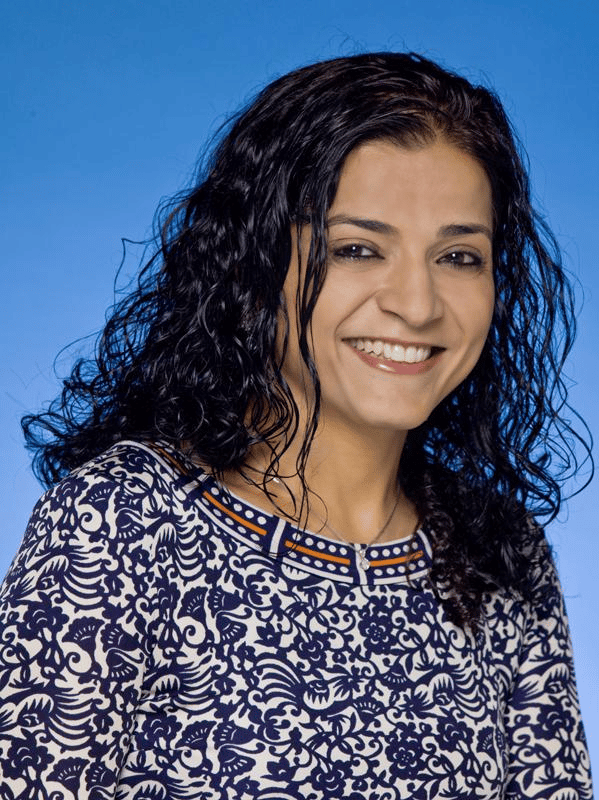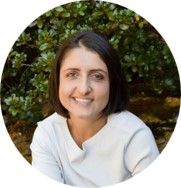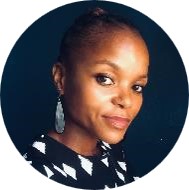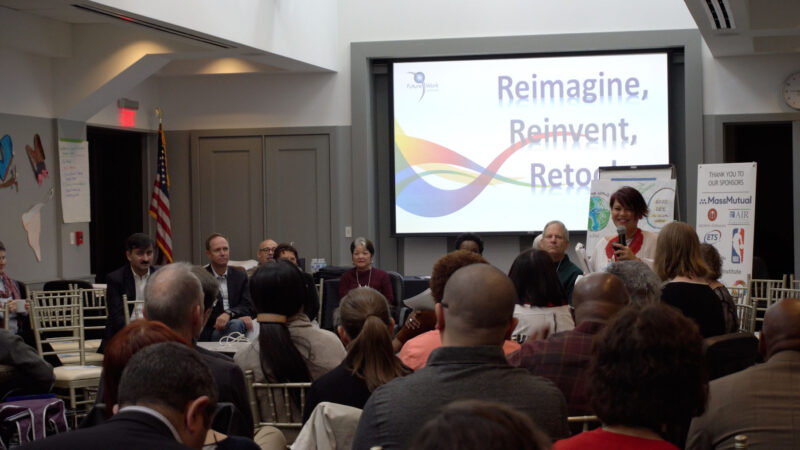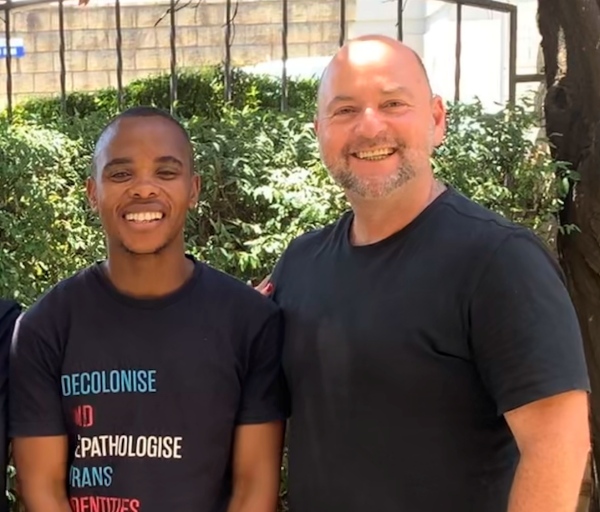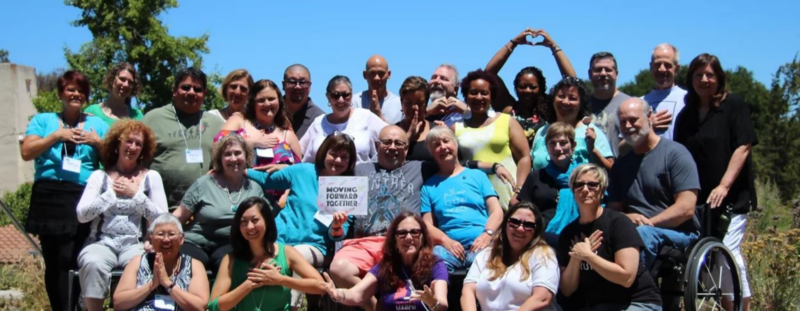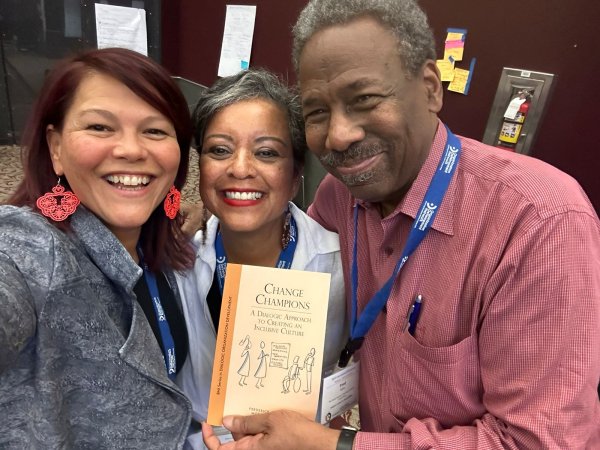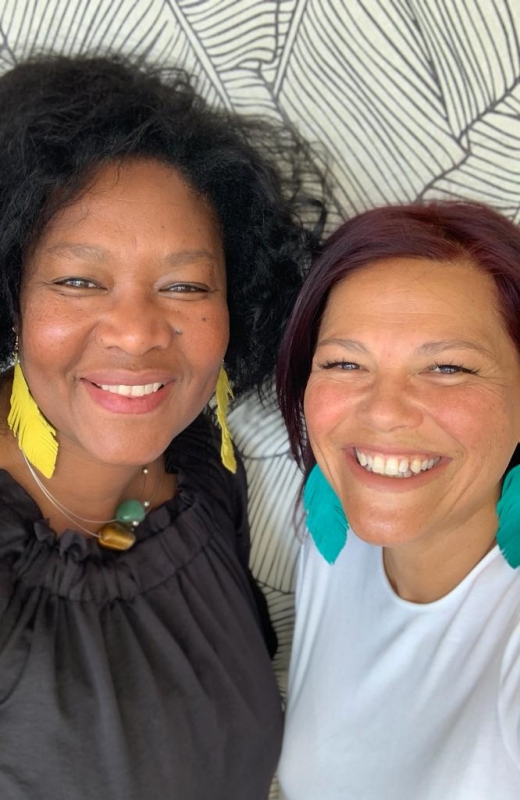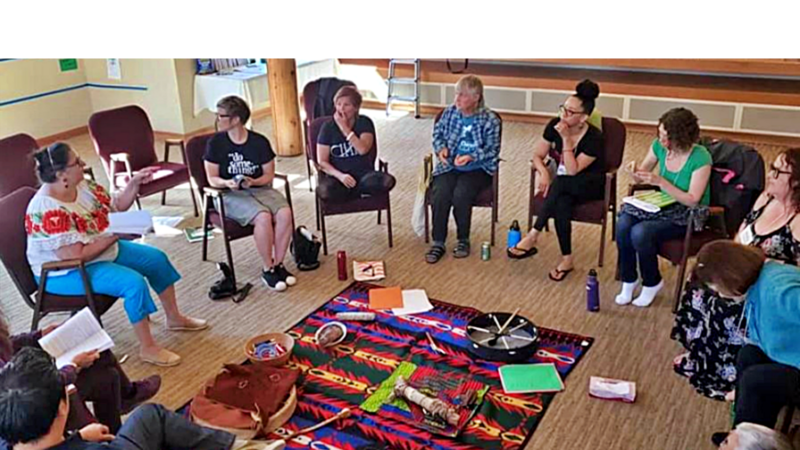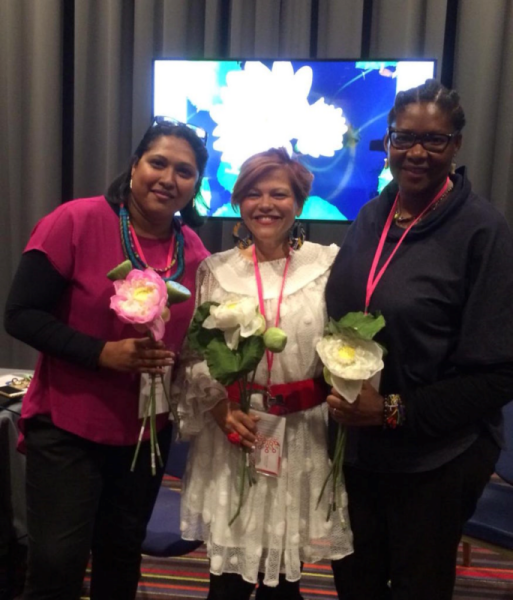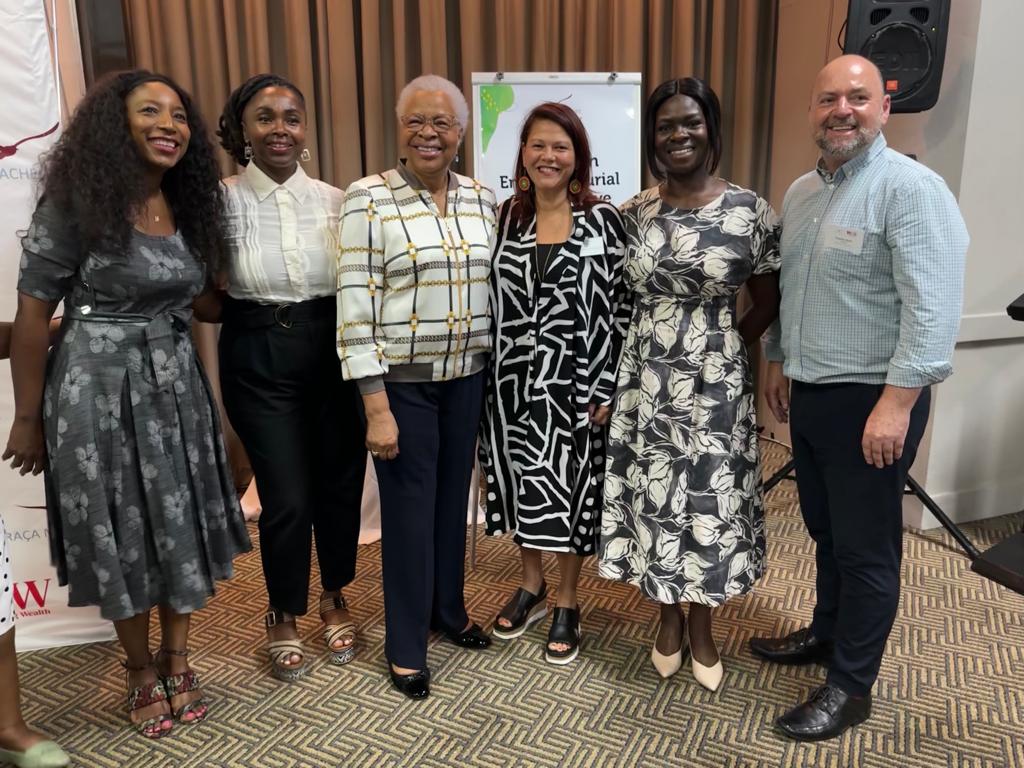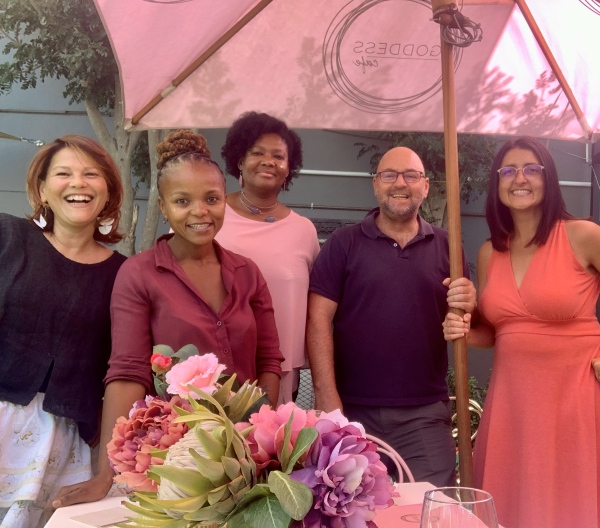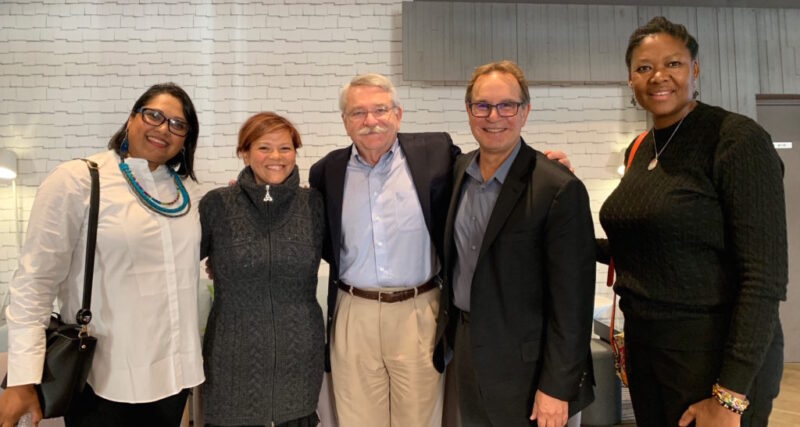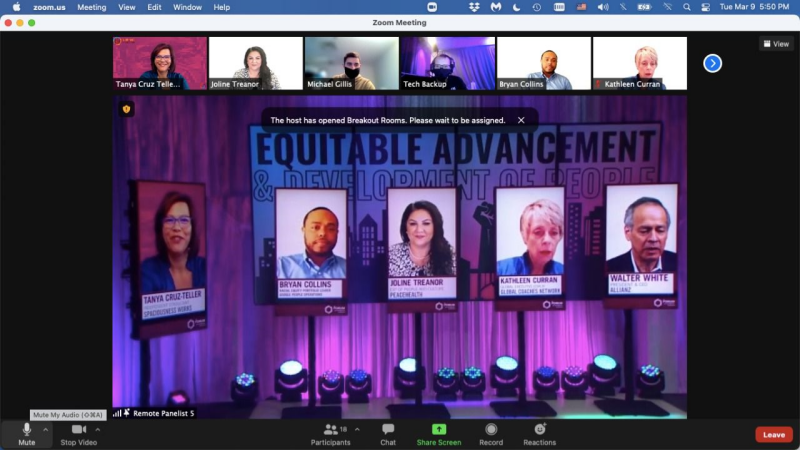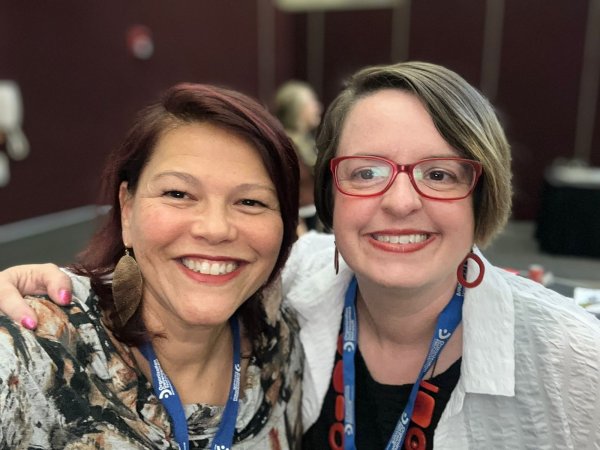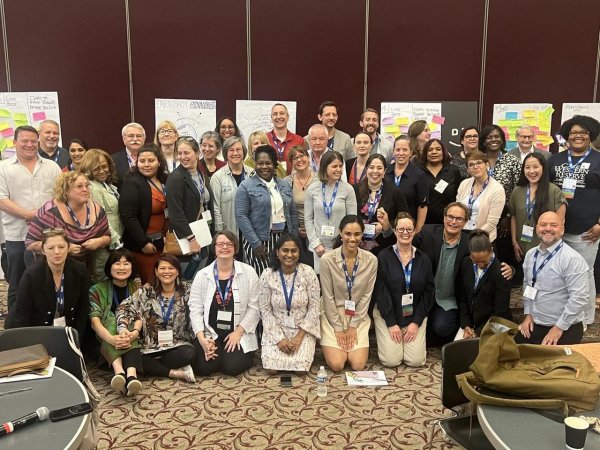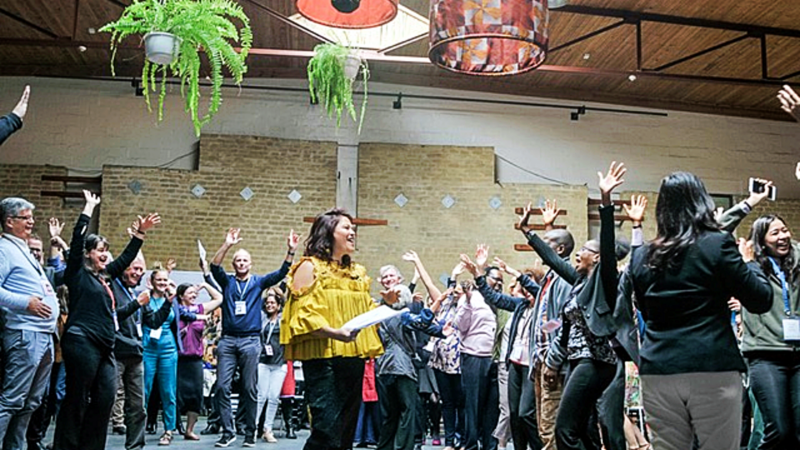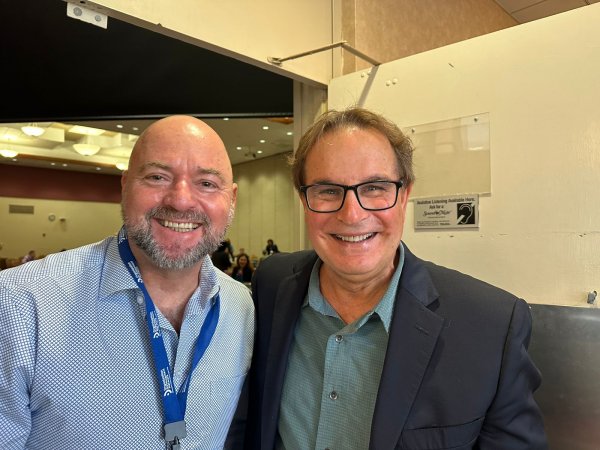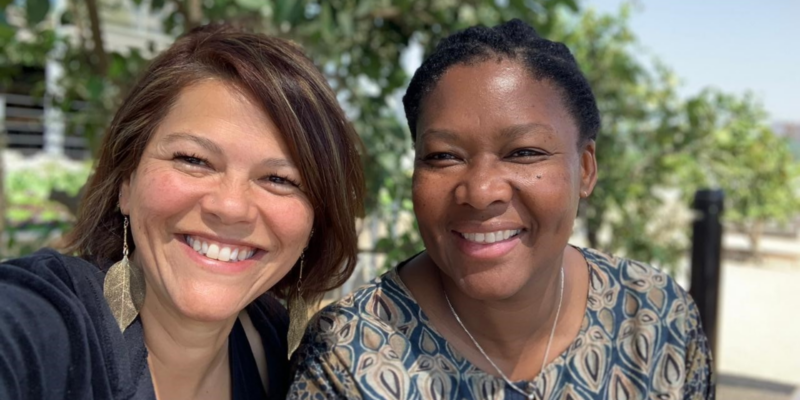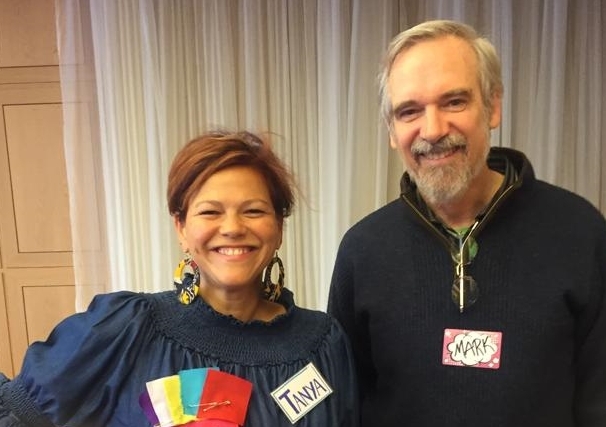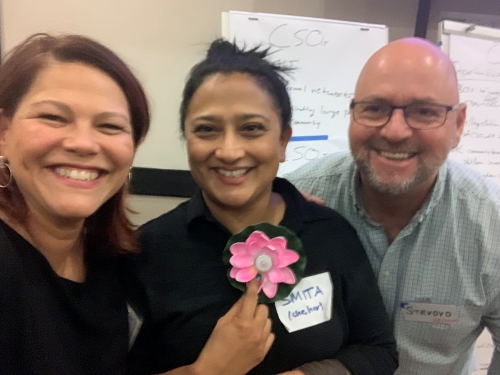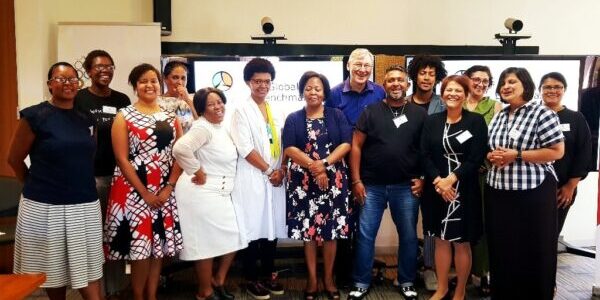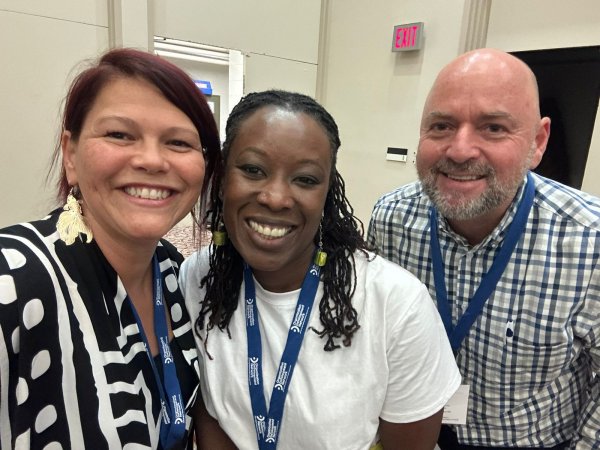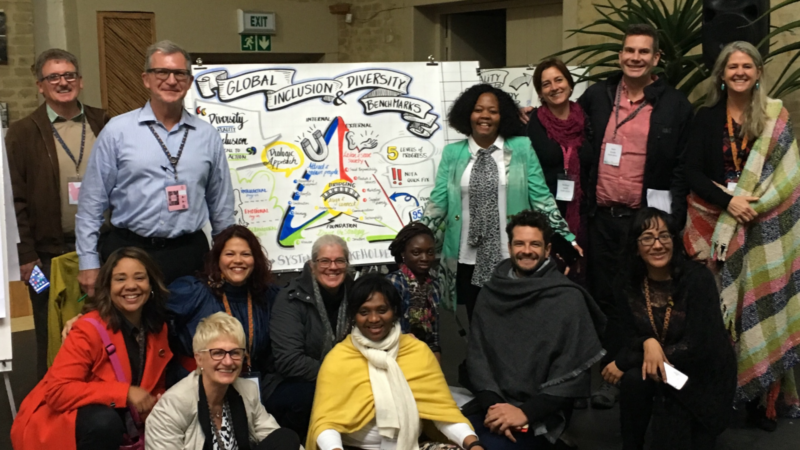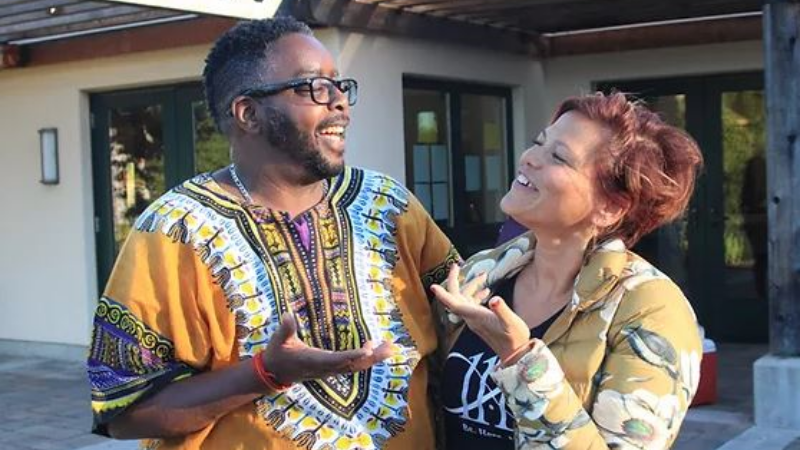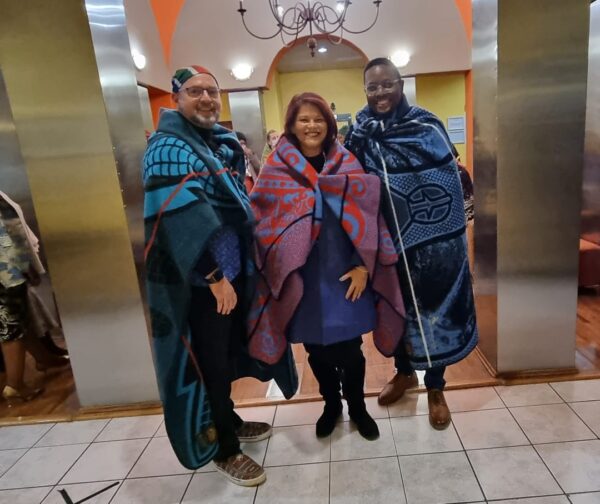“As a professor and consultant, the Appreciative Inquiry Lotus Model has afforded me the opportunity to facilitate change where each person can grow and connect to others.”
Dr. Joanne Barnes, Professor, Organizational Leadership
Appreciative Leadership Lotus Model
In reflecting on what central principles emerged from our practice, the lotus model surfaced as a generative metaphor guiding our model of an appreciative leadership process that can create spaciousness: inclusion, innovation and inspired action.
The lotus model with its three key principles — a muddy birthplace representing the belief that there are strengths to be found in any current situation, inherent wisdom within a group of people, and emergence as a valued process of knowing and coming into being — underpin a process of four iterative steps: establish a positive relationship to self (Renew); deepen one’s compassion and connection to others (Relate); imagine a shared future by co-creating it (Co-Create); commit to inspired actions, together (Resolve).
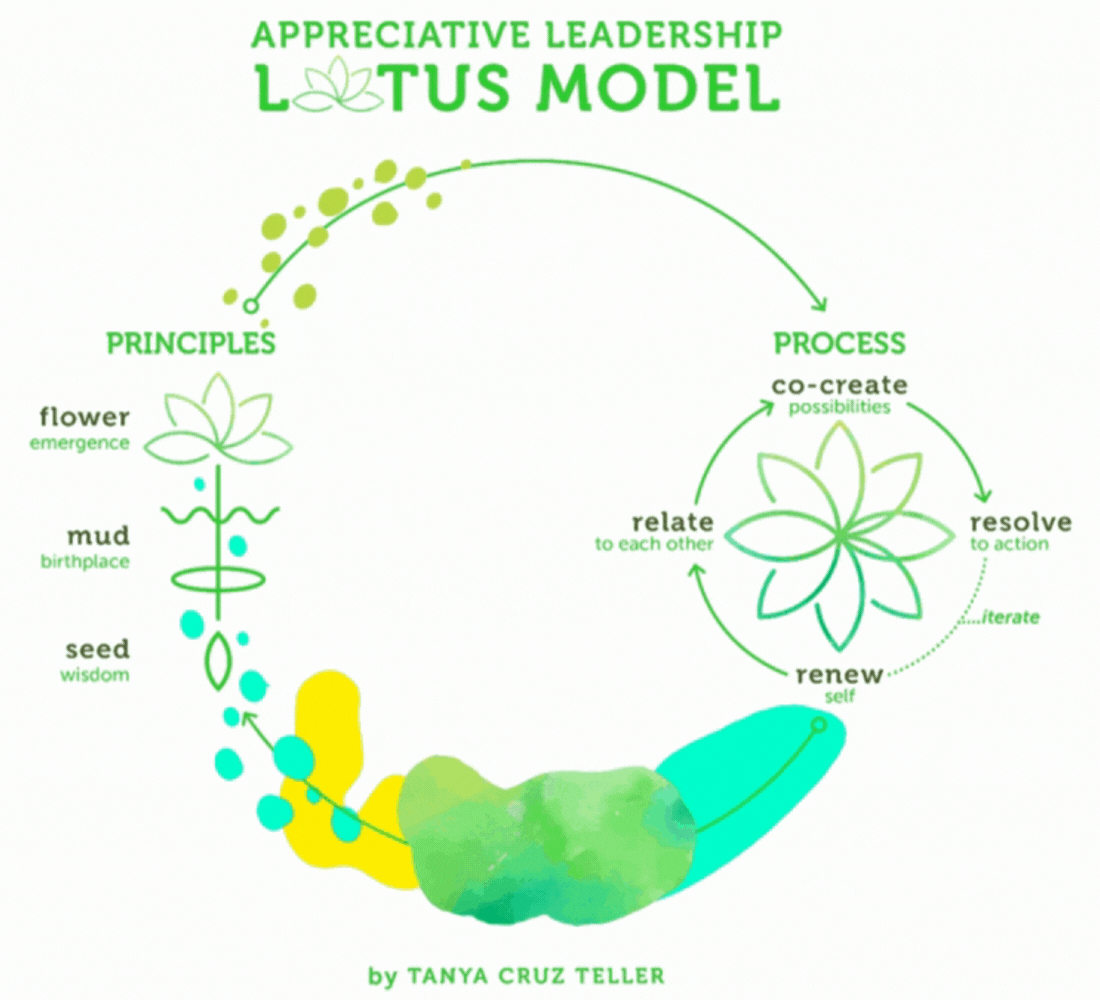
Modelo de Liderazgo Apreciativo Flor de Loto
Al reflexionar sobre qué principios centrales surgieron de nuestra práctica, el loto surgió como una metáfora funcional y se convirtió en nuestro modelo de un proceso de liderazgo apreciativo que puede crear amplitud.
El modelo de loto, con sus tres principios clave: un lugar de nacimiento fangoso representa la creencia de que se pueden encontrar fortalezas en cualquier situación actual, la sabiduría inherente dentro de un grupo de personas, y el surgimiento como un valioso proceso de conocer y nacer —sustentan un proceso de cuatro pasos iterativos: establecer una relación positiva con uno mismo (Renovar); profundizar la compasión y la conexión con los demás (Relacionarse); imaginar un futuro compartido co-creándolo (Co-Crear); comprometerse juntos a acciones inspiradas (Resolver).
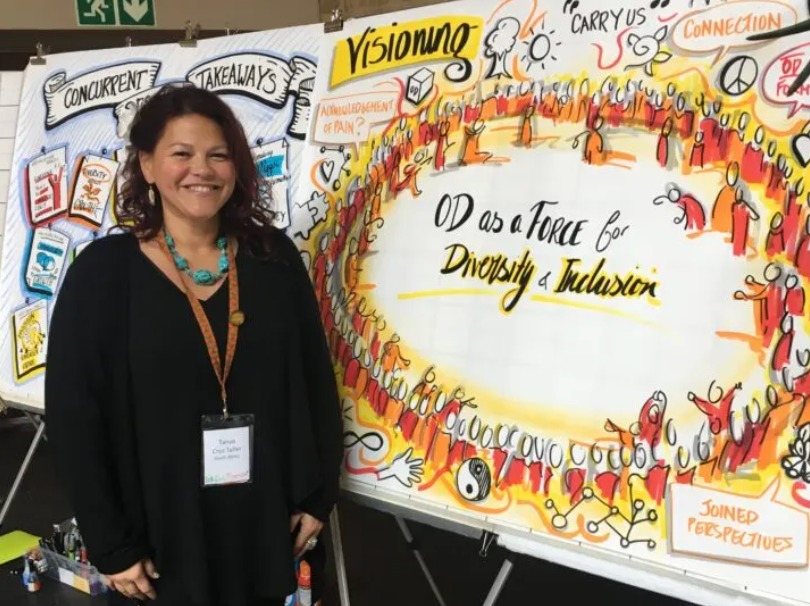
ABOUT OUR FOUNDER
TANYA CRUZ TELLER
Tanya (she/her) has over 20 years global organization development (OD) experience. She is committed to a intercultural, diverse, equitable and inclusive world through building great organizations using Appreciative Inquiry.
Tanya earned her MA in International and Intercultural Management (School for International Training) and has a BA Psychology and Sociology Cum Laude (Brandeis).
As a OD practitioner, Tanya has worked for and with governments, global non-profit organizations and businesses to create a more equitable society through maximizing belonging, innovation and inspired action. Tanya is an expert panelist for the Global Diversity Equity and Inclusion Benchmarks, a TAOS Associate, and member of the International & Organization Development Networks, the Diversity2K, currently serves on the editorial board of the International Journal of Appreciative Inquiry, and served on the boards of the Rutland Corner Foundation and ATD Editorial Board.
Tanya is a certified Appreciative Inquiry Facilitator Trainer (CAI), Trainer of Trainers and an Assessor (South Africa) and taught in the David L. Cooperrider Center for Appreciative Inquiry at the Robert P. Stiller School of Business, Champlain College. Tanya is trained, designs and facilitates with Theory U, Open Space Technology and World Cafe. Click here to see Tanya’s publications.
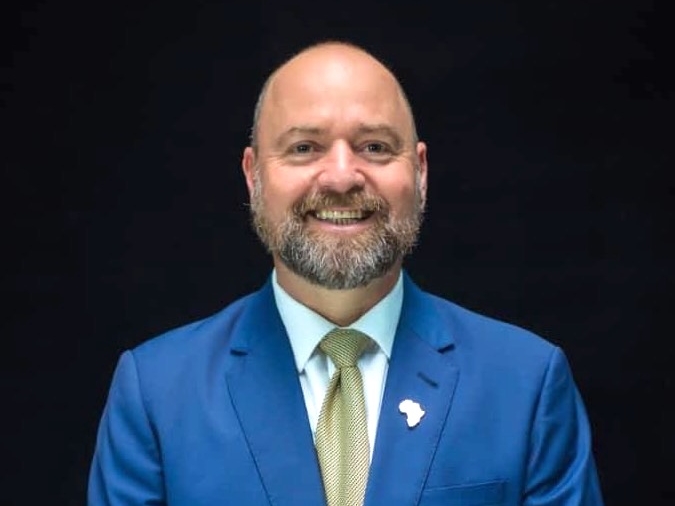
SENIOR ASSOCIATE
STEPHEN READ
Stephen (he/him) is a Mental Fitness Coach, certified through Positive Intelligence, that mentors leaders across many industries including media, tech, retail, logistics, hospitality and education working in world class urban areas through to informal settlements.
Stephen’s 30 years of experience, including as the National Director of The Mankind Project (MKP) in South Africa and a member of the International MKP Council, guides his passion working with men in various countries on issues of race, gender, sexual orientation and other systemic and cultural systems of power and privilege.
He featured as a panel judge on Africa’s Young Entrepreneurs, the largest African entrepreneur reality show, syndicated across Africa through 6 different TV stations for 5 years. Stephen is also the SA Ambassador to the World Union of Small and Medium Enterprises and has also served in roles as the Director: Strategic Alliances at the International Coach Federation (ICF), South Africa Chapter, Co-founding Director of Redeeming Hope for the Disabled and mentor for Young African Leaders Initiative (YALI). Stephen holds a Diploma in Project Management (Damelin) and Certificate in Inclusive Leadership (University of Denver Colorado).

Testimonials
Tanya is one of the best systems thinkers I know.
Julie O’Mara, Author, former President of The American Society for Training and Development (now ATD)
I had the good fortune to partner with Tanya Cruz Teller for nearly a year, as part of a complex, DEI-centered strategic planning process. I experienced her to be deeply reflective, highly intelligent, creative, intuitive and affirming. The trusting partnerships she formed with leaders and staff alike enabled her to track patterns in the broader organization, and to use her influence in service of the whole.
Tanya’s design skills are nothing short of brilliant. Drawing from a variety of disciplines (Appreciative Inquiry, Organization Development and more), she achieves just the right combination and pace of activities to deeply engage participants’ heads, hearts and hands in service of the stated goals. As a thought partner, she regularly tweaked my draft agendas in simple but vitally important ways, to significantly enhance their impact.
Finally, as a public speaker, Tanya is warm, present, reflective, and responsive to her audience. When needed, she can quickly adapt either content or delivery. She knows how to “share the stage” with others (both partners and participants), and her use of language, humor and story engages, empowers and energizes.
Amanda Trosten-Bloom, Co-Founder and Principal at Rocky Mountain Center for Positive Change
Stephen is a truly exceptional coach. He has an intuitive style, is gentle yet firm and is full of encouragement. He’s worked with me for several years guiding me, motivating me and stretching me into my fuller potential.
Stephen challenges me in a way that helps bring out the best in me. He just gets the things that trip me up and helps me to reframe a better route to a more successful career/life. I cannot recommend Stephen highly enough.
Bruce Grater, Independent Non-Executive Director and Chairperson of Prudential’s Life Insurance and Unit Trust subsidiaries
Thank you Stephen! I feel deep appreciation for you, your wisdom, and the experience you created for all of us. Everyone I have connected with has agreed about the deeply personal impact this class has had upon them.
Teale Greylord, Health Equity Strategist within the Office of Policy & Practice Alignment, Wisconsin Department of Health Services
Stephen’s strategies are unique and his advice is second to none. I also love his speed when it comes to Implementation. Stephen’s many business experiences is what we are enjoying today. It’s absolutely what makes him an outstanding coach. A man of his words!
Dr. Summy Smart Francis, Special Adviser on Entrepreneurship, Ondo State Government, Nigeria
